Introducing the Guide to CBC Oil: Unveiling the Wonders of Cannabichromene
You’re probably familiar with CBD and THC, but what do you know about CBC? An exciting secondary cannabinoid, non-intoxicating CBC product has exciting therapeutic potential and is growing in popularity.
Cannabichromene (CBC) is a naturally occurring cannabinoid in hemp plants. CBC is non-psychoactive and classed as a secondary cannabinoid. Preliminary research shows CBC may have neuroprotective properties, anti-anxiety effects, and mood-boosting effects. CBC is often found in tincture oils and vape cartridges.
Embark on a journey with our comprehensive Guide to CBC Oil. Delve into the depths of this intriguing cannabinoid, uncovering its mechanisms and potential benefits.
In this comprehensive guide, I’ll explore CBC, how it works, and its potential health benefits. I’ll also cover how to take CBC oil and how it differs from other legal hemp-based products.
Unlock the potential of CBC with our Guide to CBC Oil: Your Roadmap to Wellness.
What is CBC Oil?
CBC oil is a tincture oil product containing large concentrations of the CBC cannabinoid. It may consist of purified CBC isolate or a whole-plant hemp extract rich in CBC.
Unlike classic cannabis tinctures, CBC oil won’t make you high and is intended for therapeutic and wellness purposes. CBC is one of more than 100 natural cannabinoids identified in cannabis, but it hasn’t received as much attention as CBD and THC.
Interestingly, CBC appears to work beyond the endocannabinoid system that most cannabinoids interact with. However, the substance does stop the breakdown of endocannabinoids in the body, which could explain its medicinal potential.
If you’re a health-conscious hemp user or need to be discreet about your use, tincture oils are ideal. CBC oil is safer than vape cartridges, and the lack of smell allows for stealthy consumption!
Types of CBC oil
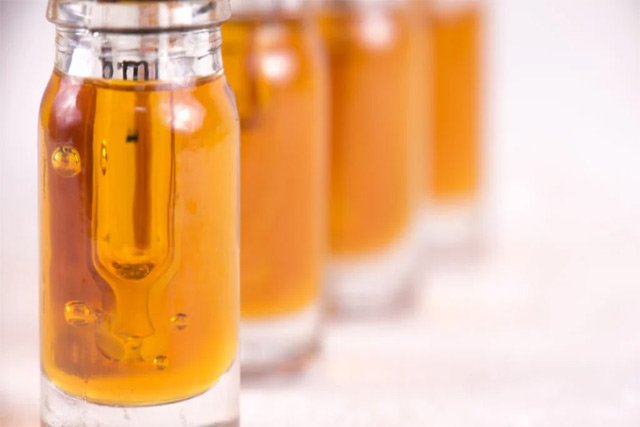
CBC-isolate oil: This type of tincture contains pure CBC extract, a carrier oil (e.g., MCT oil), and potentially natural terpenes. Only a handful of brands make CBC-isolate oils right now. But I expect to see more of these products as the cannabinoid gains recognition.
Full-spectrum CBC oil: Tinctures made with full-spectrum hemp extract are non-psychoactive but contain other cannabinoids and terpenes in addition to CBC. Full-spectrum CBC oil usually features CBD, CBG, CBN, CBDv, and up to 0.3% THC.
Thanks to the entourage effect, hemp products with full-spectrum or whole-plant extracts have extra health benefits. This synergistic interaction makes CBC more potent than when taken in isolation.
You may also find broad-spectrum CBC oil, which contains no THC. Broad-spectrum hemp products give additional assurances to those worried about failing drug tests.
CBC oil with delta-8: Tincture oils combining CBC with delta-8 offer mind-altering effects with deep relaxation. Delta-8 is a psychoactive cannabinoid that is similar to – but less potent than – THC. While CBC oil containing delta-8 is legal, you could fail a drug test due to the delta-8.
7 Potential Benefits of CBC Oil
While not yet approved for any medical conditions, CBC displays much potential in preliminary scientific trials. Here are seven possible benefits of this promising non-intoxicating substance.
Reduces inflammation
Several studies have highlighted CBC’s anti-inflammatory potential in recent years. A 2012 study published in the British Journal of Pharmacology found that CBC reduces inflammation in vivo via a currently unknown mechanism.
But intriguingly, CBC doesn’t appear to work through cannabinoid receptors or the TRPA1 receptor, emphasizing how much there is to learn about the cannabinoid.
That CBC acts differently to non-steroidal anti-inflammatory drugs (NSAIDs) is an exciting finding, given the side effects associated with these drugs. CBC could be an effective future treatment for collagen-induced osteoarthritis.
Pain relief

CBC may have therapeutic value for chronic pain, too. In 1983, General Pharmacology published a paper documenting CBC’s analgesic properties, although noted it wasn’t as potent a painkiller as THC. However, CBC could enhance the painkilling effects of THC.
The Archives of Oral Biology featured an interesting study in 2019, showing that CBC can alleviate chronic muscle pain like fibromyalgia. For years, researchers have wondered whether endocannabinoid system regulation is vital to the treatment of fibromyalgia.
Neuroprotective effects
Like many other cannabinoids, CBC has demonstrated astonishing neuroprotective properties in trials. But maybe it’s not so surprising, given the US government has had an active patent on cannabinoids as neuroprotectants for decades!
Studies have found that CBC not only protects the brain but can also stimulate the growth of new brain cells through a process called neurogenesis. An article in the British Journal of Pharmacology described how CBC promotes brain cell survival during differentiation.
May treat acne
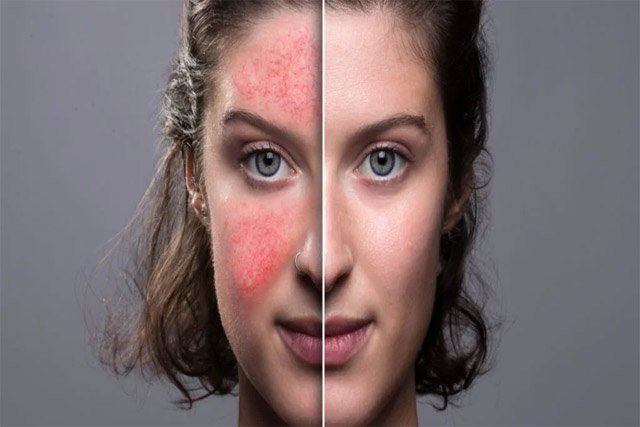
Acne is one of the world’s most prevalent skin conditions and a long-term nemesis of teenagers and adults. Few successful remedies for acne and oily skin have been found, with many treatments drying the skin out too much, thereby solving problems but creating new ones.
However, CBC appears to have a regulatory effect on sebum production. Sebum is necessary to keep the skin moisturized and to transport antioxidants into the body. But too much sebum causes the skin’s sebaceous glands to become trapped with dirt.
Topical application of the cannabinoid has an anti-inflammatory action on the skin’s sebaceous glands, reducing sebum production to healthy levels.
Antibacterial benefits
It’s scary to think that the world is struggling to develop new antibiotics. The discovery of antibiotics in the early 20th century helped to stop people from dying from blood poisoning due to minor scratches and cuts.
But humans are constantly fighting bacteria, and antibiotic resistance is growing.” Superbugs” threaten to take us back to the Dark Ages. Thankfully, cannabinoids like CBC could come to our rescue!
Studies have shown that CBC is well-tolerated and effective at treating several strains of MRSA, a notorious hospital superbug. We don’t currently understand how cannabinoids produce their antibacterial effects. But that could be a good thing as it suggests we may have stumbled on a new class of antibiotics.
May alleviate depression

CBC could relieve symptoms of depression by boosting levels of anandamide. Anandamide is a natural endocannabinoid produced by the body, nicknamed the “bliss molecule” and is regarded as essential for good mental health.
In 2010, the Pharmacology Biochemistry and Behavior journal published a study showing that CBC is a more potent antidepressant than any other cannabinoid. Sure, the research was conducted on mice, but studies on rodents are often a good indicator of how a substance works in humans.
Anti-diarrheal properties
Not a subject anyone enjoys talking about, but an important one nonetheless! CBC’s anti-diarrheal properties could help to improve overall gut health. Researchers have found that multiple cannabinoids, including CBC, help relieve pain and promote intestinal motility.
The findings have sparked hope that CBC could eventually be used to treat several gastrointestinal (GI) disorders, including irritable bowel syndrome (IBS).
How to Take CBC Oil
Tincture oils are arguably the most versatile hemp-based products on the market. You can enjoy both rapid relief and extended effects with several possible consumption methods.
Sublingual absorption (under the tongue)
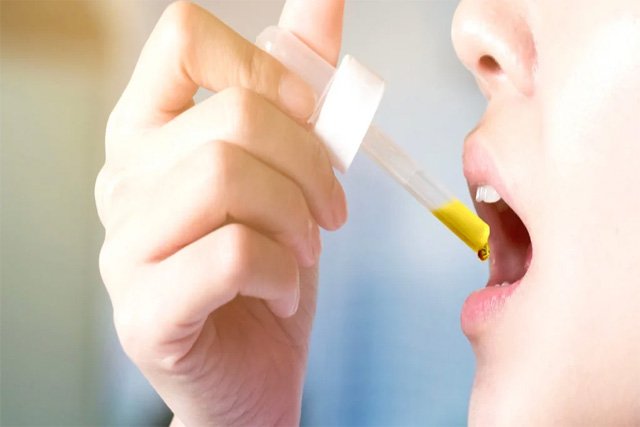
This is the first intake method that springs to mind with tinctures like CBC oil – and it’s the most efficient mode of consumption.
A full dropper of CBC oil administered under the tongue will bring you potent relief in just a few minutes as the sublingual glands work their magic. Sublingual absorption speedily transports cannabinoids from the mouth into the bloodstream.
I recommend sublingual absorption if you need instant relief from your systems, such as social anxiety. You may need to top up your dose every two to three hours, but it’s worth it for the fast-acting benefits.
In foods and beverages
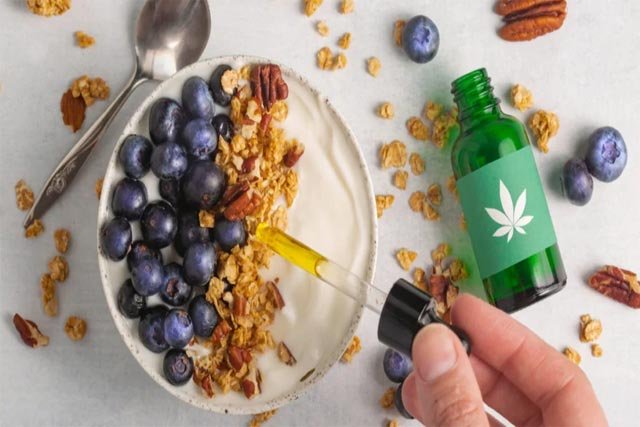
Mix CBC oil into foods and beverages to turn it into an edible. This masks the earthy hemp flavor of full-spectrum tinctures and extends your high by several hours. The sole downside is that you won’t experience relief as quickly.
Therefore, taking CBC oil in this way is preferable if you’re suffering from chronic symptoms. Perhaps you need a sustained mood booster or a remedy for persistent pain. In these scenarios, you can forego the instant hit for lasting benefits.
Topically (applied to the skin)
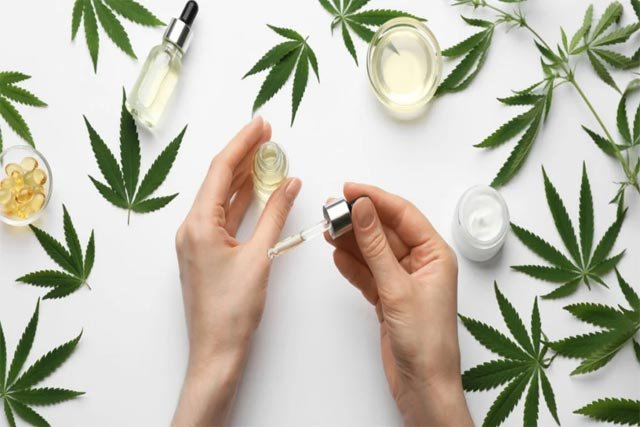
A clever and often neglected way of using tinctures, CBC oil also works when applied to the skin – but only for certain ailments. Topical application can relieve localized pain and inflammation, potentially helping with arthritis and acne.
However, when applied to the skin, the CBC does not pass into the bloodstream and travels up to the brain. Therefore, topical application cannot be used to ease anxiety or boost mood.
Since CBC oils are very potent, I like to blend them with another cream. Then, I can rub the cream into my skin more liberally and not have to worry about using too much product.
What is the Difference Between CBD and CBC?
Cannabidiol (CBD) and cannabichromene (CBC) have more similarities than differences. Both are non-psychoactive cannabinoids, although CBD is much better known in the hemp world and beyond.
Hemp plants produce much more CBD than CBC, which explains why the former has taken off, and the latter is playing catch-up. We have relatively little research on CBC, even though it was first identified in 1966, compared to the wealth of scientific literature on CBD.
CBC may have more potential as a treatment for inflammation and neuropathic pain than CBD. Studies have found that CBC has a higher affinity for 5-HT1A and TRPV1 receptors than CBD.
However, for these benefits to be fully realized, growers will have to find a way for hemp plants to start generating much more CBC than they currently do.
Possible Side Effects of CBC Oil

Despite the immense promise of CBC oil, like any other substance, it still has a risk of side effects. Generally, CBC appears well-tolerated, but given the absence of research, there could be stuff that we haven’t uncovered.
CBC oil may interfere with some prescription drugs. Although researchers haven’t identified a definitive link, we do know that CBD inhibits cytochrome P450 enzymes (CYPs).
CBD can affect active blood concentrations of antidepressants, antihistamines, beta-blockers, calcium channel blockers, and more. It’s not a stretch of the imagination to suggest CBC may do the same.
If you are taking prescription medication, consult with your doctor before taking CBC supplements.
Can I Travel with CBC Oil?
In most cases, yes. If you fly domestically within the United States, you can travel with hemp-based CBC oil. However, for international effects, you should check the hemp and cannabis laws of your destination country.
CBC oils containing delta-8 could present problems. While legal at the federal level, several states – including New York, Texas, and Washington – have recently banned delta-8. As with international flights, check the delta-8 laws in your destination state before flying.
Will CBC Make Me Fail a Drug Test?

No. CBC is completely non-psychoactive and does not show up on a drug test. However, if you are worried, choose a CBC-isolate or broad-spectrum tincture over a full-spectrum tincture. The latter can legally contain a small amount (less than 0.3% THC), which could potentially trigger a failed test.
You will probably fail a drug test if taking CBC oil infused with delta-8. Because delta-8 and THC are such similar compounds, drug tests often go off for the former, even though it’s legal. I recommend sticking with THC-free products if you’re concerned about drug tests.




